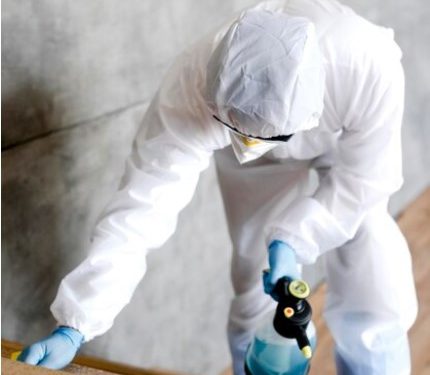Mold inspection is an essential aspect of maintaining a healthy and safe living environment. Often underestimated, mold can pose significant health risks and cause considerable damage to properties if not addressed promptly. In this 500-word exploration, we delve into the importance of mold inspections, emphasizing their role in safeguarding health, preserving property integrity, and ensuring peace of mind.
Health Implications of Mold
Mold, a type of fungus that thrives in damp environments, can have serious health implications, particularly for individuals with allergies, asthma, or weakened immune systems. Exposure to mold spores can lead to respiratory issues, allergic reactions, and in severe cases, chronic lung conditions. Young children, the elderly, and those with pre-existing health conditions are especially vulnerable. Regular mold inspections can detect the presence of mold before it becomes a health hazard, ensuring a safer living environment.
Structural Damage and Property Value
Beyond health concerns, mold can cause significant structural damage to properties. It can weaken floors, walls, and ceilings by breaking down the materials they are made of, leading to costly repairs and a decrease in property value. An early mold inspection can identify potential issues, allowing for timely remediation and preventing extensive damage. This not only saves on costly repairs but also helps in maintaining the property’s market value.
Indoor Air Quality
Mold inspections play a vital role in maintaining indoor air quality. Mold growth can lead to poor air quality in homes and workplaces, which can affect comfort and overall well-being. Professional mold inspections involve testing the air for spores and assessing ventilation systems, ensuring that the indoor air remains healthy and breathable.
Preventing Mold Spread
Mold can spread quickly in suitable conditions. Without timely detection and management, a small mold problem can escalate into a major infestation. Regular mold inspections help in identifying early signs of mold growth, allowing for swift action to prevent its spread. This proactive approach is essential in managing mold effectively and avoiding more significant issues in the future.
Legal and Insurance Considerations
For property owners, especially landlords and business owners, mold inspections are critical from a legal and insurance perspective. Regular inspections can help in complying with health and safety regulations, reducing the risk of legal liabilities related to mold-related health issues. Additionally, in some cases, insurance policies may require regular mold inspections as part of their terms, particularly in areas prone to high humidity and moisture.
Peace of Mind
Knowing that your property is free from mold provides peace of mind. Homeowners, families, and employees can feel more comfortable and secure in their environment when they know that regular inspections are conducted, and any potential mold issues are being proactively addressed.
Cost-Effectiveness
Investing in regular mold inspections can save money in the long run. The cost of addressing a small mold issue is significantly lower than remediating widespread mold damage. Regular inspections help in catching potential problems early, reducing the need for extensive and expensive remediation efforts.
Informed Decisions for Home Buyers
For those looking to buy a property, a mold inspection is crucial. It provides valuable information about the condition of the property and can influence the buying decision. Identifying mold issues beforehand can save potential buyers from investing in a property with hidden problems, ensuring a sound investment.
In conclusion, the importance of mold inspections cannot be overstressed. They are vital for maintaining a healthy living environment, preserving the structural integrity and value of properties, and providing peace of mind to occupants. Regular mold inspections are a proactive measure that all property owners should consider to ensure their environment is safe, healthy, and mold-free.















